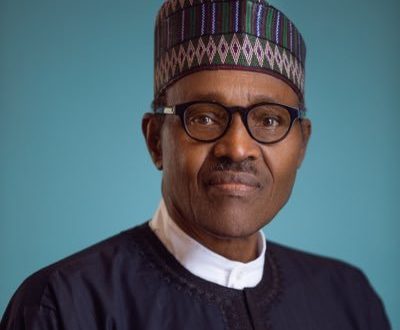Oluwasina Phillip
President Muhammadu Buhari has said that Nigeria loses $26.3 billion annually to maritime crimes annually.
He spoke at the commissioning ceremony of a maritime surveillance project, Falcon Eye Alignment, at the Naval Headquarters in Abuja.
The president’s disclosure came as the Chief of Naval Staff, Vice Admiral Awwal Gambo, said the surveillance project had aided the navy in the recovery of 300,000 bags of foreign rice valued at N9billion and the arrest of 500 suspects in addition to the arrest of 30 vessels and 50 pirates since 2016.
This comes as the National Security Adviser, Maj. Gen. Mohammed Monguno (rtd), said the project was designed to combat myriad of security challenges in the maritime sector including kidnapping of oil workers, crude oil theft and piracy.
President Buhari, who was represented by Vice President Yomi Osinbajo, said threats to the maritime environment had become more harmful to the economy hence the project.
“In recent years some key identified threats within Nigeria’s maritime environment have taken on increasingly more harmful dimensions to our economy and even the safety of citizens and commercial entities who use the maritime domain these include, piracy, armed attacks on ships, kidnapping for ransom, crude oil theft, smuggling, as well as Illegal Unregulated and Unreported Fishing (IUU).
“It is estimated that Nigeria loses about $26.3 billion annually to various forms of criminality particularly piracy and sea robbery”, he said.
The president said the “Falcon Eye system is a state-of-the-art surveillance facility that incorporates various sensors located along the nation’s enormous coastline, such as radars, long range electro
optic systems with thermal or night vision capability, automatic identification system receivers, weather stations and marine Very High Frequency radios for communication”.
Buhari noted that “the integration of these sensors into the Falcon Eye system generates a real-time situational awareness of the activities of vessels in Nigerian maritime domain and some selected parts in the Gulf of Guinea.
“This will enable the Nigerian Navy generate a comprehensive intelligence picture of activities within our maritime environment for further analysis before, in appropriate cases , dispatching a Nigerian Navy Ship for interdiction, investigation, and/or subsequent arrest of erring vessels”.
He stated that “the Falcon Eye system will serve as a force multiplier for our naval platforms tasked to effectively secure our maritime environment from external aggression. It will also enable the Nigerian Navy to effectively combat any maritime crimes that could disrupt the conduct of maritime trade”
In his remarks, the Chief of Naval Staff, Vice Admiral Awwal Gambo, said the surveillance project had aided the navy in the recovery of 300,000 bags of foreign rice valued at N9billion and the arrest of 500 suspects in addition to the arrest of 30 vessels and 50 pirates and 70 oil tankers laden with stolen products worth $1billion since 2016.
He said the project entails the deployment of five over the horizon radars to cover the entire nation’s coastline and up to 200nm or 370.4 km seaward translating to the complete coverage of Nigeria’s exclusive economic zone, monitoring and analysis of data from sensor sites strategically located along the nation’s coastline facilitated through the four Falcon Eye centers in Abuja, Lagos, Yenagoa and Calabar.
“Remarkably, the Nigerian Navy has recorded successes in her fight against illegalities at sea through employment at the Falcon Eye facility. From 2016 to date, the intelligence generated from the Falcon Eye System led to the seizure of over 300,000 bags of foreign rice valued at N9billion and arrest of over 500 suspects.
“It also led to the arrest of 70 oil tankers laden with stolen products valued at $1 billion. Furthermore, it led to the arrest of 30 vessels engaged in illegal, unregulated and unreported fishing as well as arrest of over 50 pirates”, he said.
Gambo said the satellite coverage aspects of the project extends to Cote D’Ivoire, Cameroun and Angola and enables the Navy maintain intelligence sharing with Italian and Indian Navies.
 The Commerce Africa African Reneissance
The Commerce Africa African Reneissance


